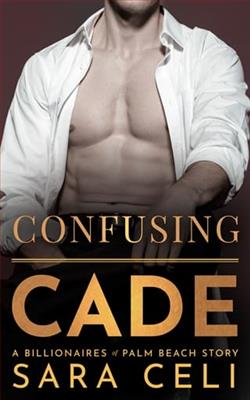Page 87 of Cry Havoc
“Why don’t you hold on to that and give it to him when you can. We’ll be able to get another bird in there when you are done in Saigon.”
“Okay,” Tom said. “Now, let’s go get Amiuh. I’ll help you carry him to the plane and say my goodbyes.”
With that, the men turned back to the hangar where a jeep waited to take them to the mortuary, to their friend and teammate Amiuh, for his final journey home.
CHAPTER 28
Continental Palace
Saigon, Vietnam
SERRANO PULLED HIS FORDZephyr to the side of the street and parked behind a green Renault Quatre Chevaux, which looked like a four-door Volkswagen Beetle.
“The Givral,” he said. “It’s a coffee shop. It’s just across from your hotel but has better java. And they know to make mine with honey and cream. It’s also a morning and afternoon haunt for spies and diplomats, raconteurs of all types. If you get bored, just come over here.”
They exited the vehicle and stepped into the café that abutted the sidewalk. Serrano caught the eye of a thin Vietnamese man smoking a cigarette. A pack of Lucky Strikes was on the table in front of him next to an ashtray filled with ash and butts. He was holding court with two Westerners and at his side was an enormous German Shepherd.
“That’s Pham Xuan An,” Serrano said as they waited in line to order. “He’s a journalist, but they call him General Givral because he can always be found here with that dog of his.”
“Doesn’t the dog get hot?”
“One would think. His name’s King. Goes everywhere with An. You will probably see him at the hotel. He meets with sources andother reporters in room 307. Interesting guy. I haven’t quite figured him out yet.”
“Who are the other two?”
“David Halberstam withThe Timesand Neil Sheehan with UPI.”
Serrano ordered a coffee in perfect Vietnamese.
“You want yours with honey?”
“I’ll stick with black.”
“You don’t know what you’re missing.”
They moved to the side to wait.
“This is a different side of the war, Tom.”
“Doesn’t even look like a war here.”
“And that’s the problem. These reporters are having the time of their lives. They got a little action during Tet, so now they have stories for cocktail parties in New York, but Saigon is back to normal. And it’s not just the journalists. State, Agency, military officials, USAID—shit, everybody is livin’ it up on ol’ Uncle Sugar’s dime. They have gotten too comfortable here. Plus, they rotate home. It’s not like World War Two where men were deployed until the war was won. This new model incentivizes making it through your year in-country rather than defeating an enemy. Push them all out of Saigon, out to the FOBs, and leave them there until it’s done. Then, one way or the other, this war ends.”
Their coffees arrived, and the two men took seats at an open table in the crowded café.
“It’s not just Vietnam, Tom. Democracy in Vietnam is a sham. Everyone knows it. No one gives a fuck about ’Nam. It’s nothing to us. In its broader context it’s the hot zone in a Cold War, but that war is only cold between the U.S. and Soviets, and by God it better stay that way. We can fight hot wars in Angola, Rhodesia, Dhofar, the Congo, Nigeria, and who knows how many other places before one of us wins. As long as the nuclear weapons don’t fly, it’s a win for all of us.”
Tom lit a cigarette.
“You think we can win this?”
“Maybe. I don’t know. You need the support of the populace, not just here but in the United States. After the reporting I’ve seen on Tet, I think it’s going to be tough. We’ve lost support here and at home. That puts us at a severe disadvantage. Probably unrecoverable. Our presence in Vietnam is about a perceived advantage in gaining control and influence in third-world countries that are not yet affiliated with us or the Soviets. This war is an attempt to establish a dominant position and halt Soviet expansion.”
“The Domino Theory,” Tom said. “You believe it?”
“It has merit. Now that we are fully engaged, if we withdraw, it will undoubtedly embolden the Soviets. That was always the danger of intervention. If we lose, American power and the deterrence it represents is exposed as a myth and will encourage our enemies to instigate acts of aggression that perhaps they would have avoided but for an American defeat in Vietnam. That’s the real danger and why I keep doing what I’m doing. How important was Vietnam to the Soviets? Not very. Not until we got here. Now it is extremely important to them. If they can engineer a U.S. defeat in ’Nam, they can do it anywhere we decide to intervene. That’s the danger.”
“You paint a bleak picture.”















